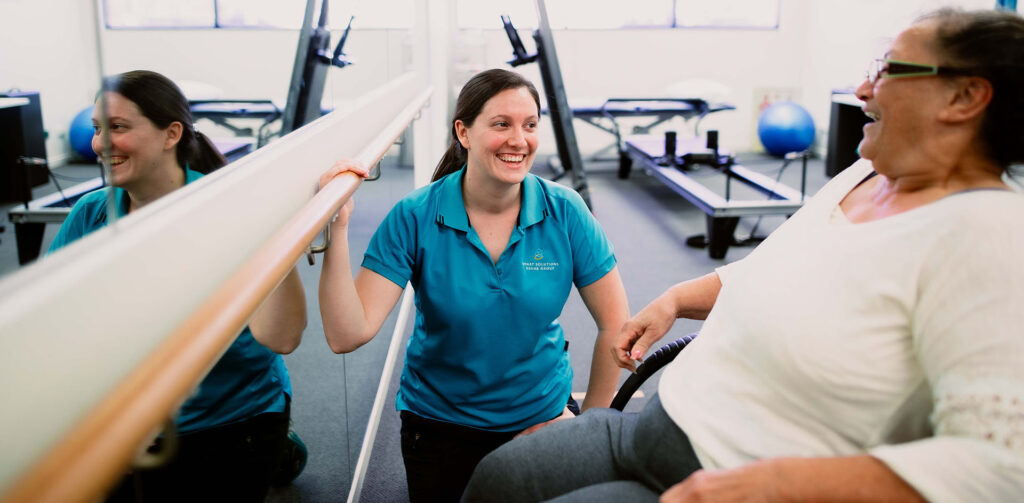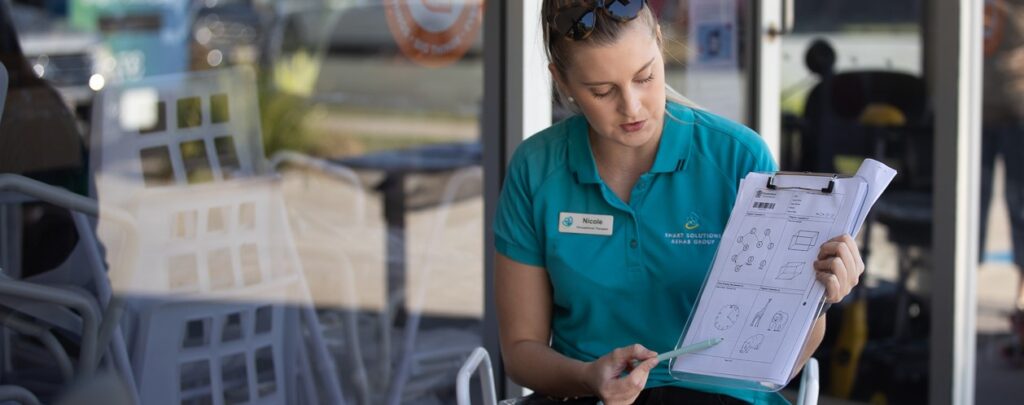Physiotherapy
Exercise Physiology AND Physiotherapy
“Alone we can do so little but together we can achieve so much” Exercise physiology and physiotherapy within disability and age care rehabilitation complement each other effectively and prove to show significant benefits on expected outcomes for participants. The ICF framework emphasises a holistic view of health, considering not just the medical condition but also…
Read More5 Myths about Exercise Physiologists
Accredited Exercise Physiologists (AEP’s) are university-qualified allied health professionals who design, deliver and evaluate safe and effective physical interventions for people with acute, sub-acute or chronic medical conditions, injuries or disabilities. AEP’s work across a vast spectrum of conditions in both public and private sectors, including neurological and disability sectors. AEPs can help people living…
Read MoreThe importance of maintaining physiotherapy services during COVID-19
Physiotherapy has long played an important role in maximising independence and optimising mobility. At the beginning of the pandemic, leading physiotherapists expressed concern that stay-at-home orders would lead to a significant decrease in physical activity and that this might result in higher instances of falls and decreased physical function in older Australians. These concerns reflect…
Read MoreParkinson’s: Causes, symptoms and management
What is Parkinson’s? Parkinson’s is a progressive neurological condition that recent research suggests affects over 100,000 Australians. Parkinson’s presents through a variety of symptoms making it difficult to diagnose. Primarily affecting older people, 65 is the average age of a Parkinson’s diagnosis, however Young Onset Parkinson’s is diagnosed in approximately 20% of cases. What causes…
Read MoreBack to Basics: Physiotherapy
What is a Physiotherapist? Physiotherapists possess in-depth understanding of the human body in terms of both structure and movement. This comprehensive knowledge allows Physios to assist with a diverse range of health conditions, from sporting injuries through to more serious health conditions. What can a Physiotherapist help with? Physios diagnose and treat a variety of…
Read MoreAssistive Technology, Independence and Inclusion
What is Assistive Technology? Assistive Technology (AT) can constitute an integral part of the support framework that helps people living with a disability realise their potential. AT generally incorporates any equipment, system or design that assists a person with a disability to navigate their home, workplace, school, or community, and to undertake tasks and achieve…
Read MoreSpotlight on Spine Injuries
The Role of Physiotherapy in Retaining Independence After SCI Last week (7th to 13th September) was Spinal Cord Injury Awareness Week, with this year’s focus highlighting the importance of accessibility in ensuring opportunities for people with a spinal cord injury. The spinal cord is a complex bundle of nerves responsible for sending brain signals to…
Read More5 keeping active health tips
5 tips to keep active for good health QUESTION: What’s the common denominator amongst these typical activities that occur during most people’s day to day life? Watching an episode on Netflix. Writing an email to a friend or colleague. Reading a book. ANSWER: All of these activities are considered to be ‘sedentary’ behaviours! Sedentary behaviour…
Read MoreSMART Rehab
Do you know the SMART approach to rehab? SMART goals is an evidence-based goal setting practice used by many health professionals to guide their clinical work. In a nutshell, SMART goals helps individuals to identify goals they want to achieve and assists in working out a realistic plan for getting there. SMART stands for: S…
Read MoreNDIS Plan Review
Allied Health NDIS Plan Review Assessments and Reports Why They Are So Important What is a Plan Review? The NDIS requires regular Plan Reviews. This means that all the supports that have been allocated to you in your NDIS Plan are reviewed for ongoing suitability and to ensure that the supports till meet your needs.…
Read More








